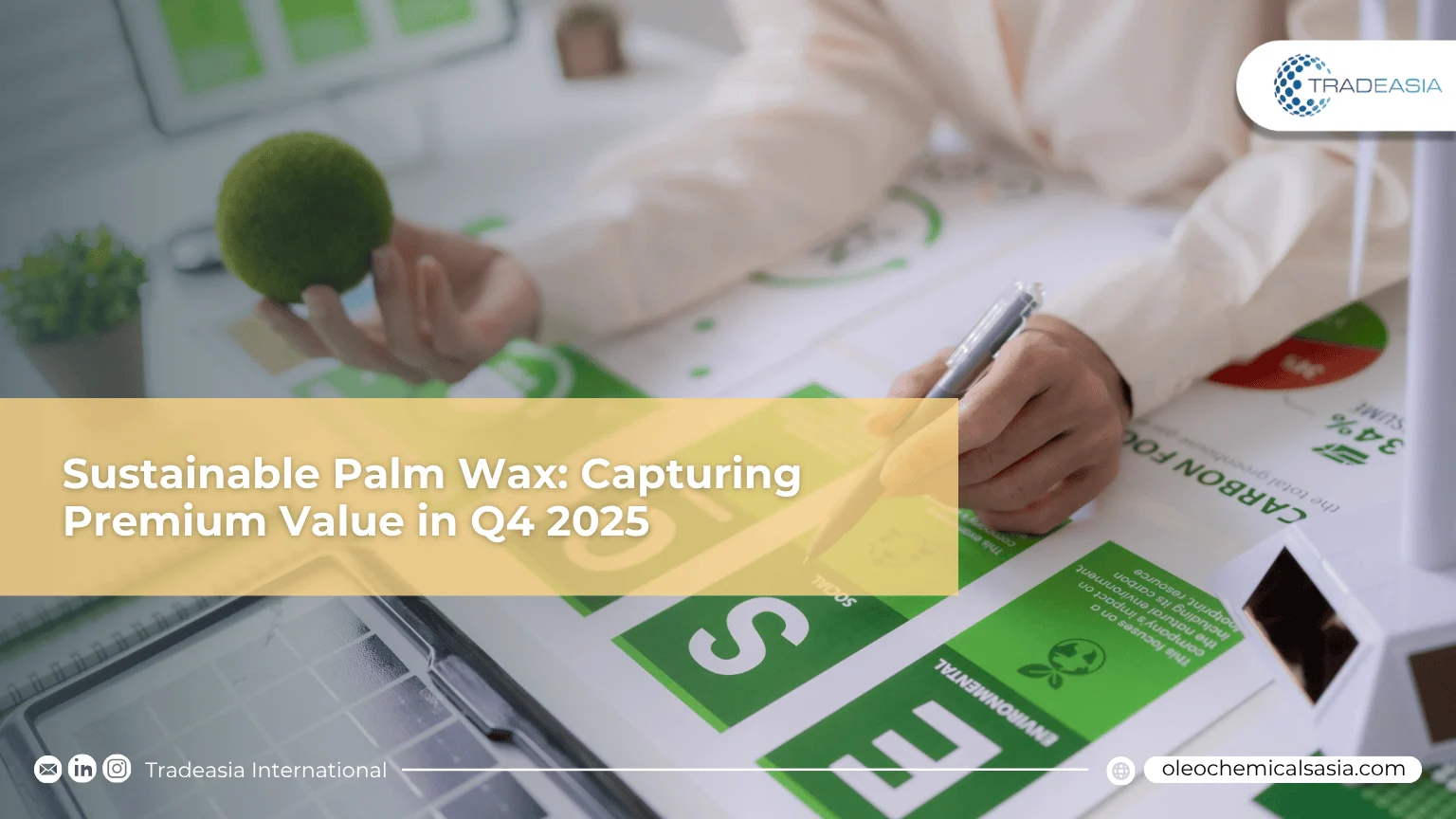Navigating the Green Wave: How Sustainable Palm Wax Secures Premium Value in Q4 2025

Table of Content
- The Economic Upside of Verified Sourcing
- Scale and Certainty: Guaranteeing Supply Integrity
The closing quarter of 2025 is setting the stage for a critical shift in how global businesses source natural raw materials. No longer is sustainability a niche concern; it is the primary driver of market premium and resilience. For companies trading in bio-based materials, the performance of Sustainable Palm Wax this season offers a clear blueprint for success. This high-performance derivative is proving its financial mettle, with market data projecting the global Industrial Wax Market to reach an estimated value of USD 11.4 Billion in 2025, with natural waxes accelerating growth. This trend confirms that ethical sourcing is synonymous with capitalizing on a high-growth sector.
At Tradeasia International, we understand that capitalizing on this "Green Wave" requires more than just logistics; it demands a deep commitment to sourcing integrity and market foresight. As a key partner in the global palm and oleochemical value chain, our focus remains on connecting high-quality, certified supply with global demand, ensuring our clients benefit from market trends. It is our firm belief that "the true value of a partnership is measured not by volume, but by the transparency it brings to every transaction," a principle that guides us in sourcing materials that satisfy both quality and ethical mandates.
The Economic Upside of Verified Sourcing
The financial incentive for choosing sustainable palm wax is clear and quantifiable. Market intelligence indicates that over 80% of today's consumers are signaling their clear preference by being willing to pay a premium for ethically sourced products. This consumer pull translates directly to a high demand for certified inputs further up the supply chain. The Oleochemicals market, which provides the feedstock for palm wax, is set for robust expansion, with projections indicating a Compound Annual Growth Rate (CAGR) of 6–7% through 2030, according to industry outlooks. This growth confirms that palm wax is strategically positioned within a rapidly expanding, high-value sector. Furthermore, the commitment to social sustainability is visible in the raw material’s origin: through the RSPO Smallholder Support Fund (RSSF), over 57,000 farmers have benefited from more than USD 5.3 Million in funding since 2013, ensuring economic stability at the root of the supply chain.
Scale and Certainty: Guaranteeing Supply Integrity
For corporate buyers, the integrity of the supply is non-negotiable. The industry is currently demonstrating its commitment to scale and ethical production with verifiable figures. The total volume of certified raw material is significant, with 89% of available Certified Sustainable Palm Kernel Oil (CSPKO) volume sold in the last reporting period, indicating strong B2B market absorption and reliable supply. The supply chain’s environmental performance is equally impressive: RSPO members have cumulatively avoided Greenhouse Gas (GHG) emissions equivalent to 567,734 cars since 2015. By choosing certified palm wax, businesses are not merely making a moral choice; they are securing access to a high-growth market segment and aligning their brand with verifiable, impactful sustainability metrics that resonate with today's premium consumers.
Sources:
-
Oleochemical Market Outlook: September 2025 Trends and Opportunities (https://www.oleochemicalsasia.com/market-insights/oleochemical-market-outlook-september-2025)
-
Global Industrial Wax Market Size & Forecast [Latest] (https://www.marketsandmarkets.com/Market-Reports/industrial-wax-market-197935975.html)
-
Our impact - Roundtable on Sustainable Palm Oil (RSPO) (https://rspo.org/our-impact/)

Leave a Comment